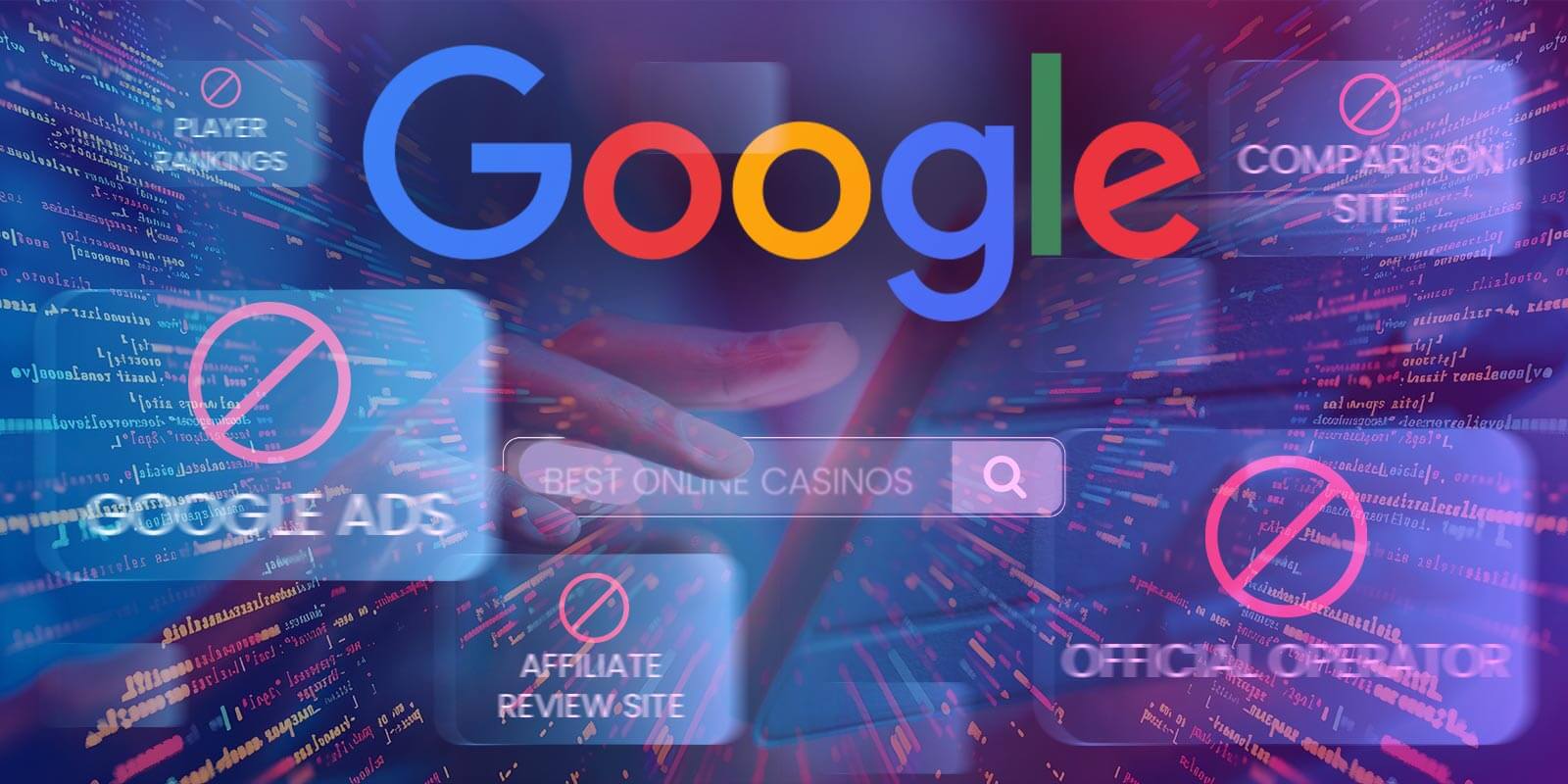Google’s Gambling Ads Shake-Up: Affiliates Face New Restrictions in 2025

Affiliate Disclosure : We earn a commission from partners links on BetterGambling. Commissions do not affect our editors' reviews, recommendations, or ratings.
On April 15, 2025, Google implemented a major update to its gambling ads policy, which includes clear definitions of country-specific regulations. While these updates are planned to improve ad quality and protect users, there’s an uncomfortable truth buried in the details.
Affiliate sites that vet casinos and compare them to help players choose will now be pushed further down the search results. What effect will this have on players, affiliate sites and operators? Our guide today assesses the gambling ad policy to see who Google prioritises and what players should do.
- The Policy Change That Could Redefine Gambling Visibility on Google
- Casino Affiliates Are in the Firing Line: Here’s Why
- What Ad Types Are Getting Eliminated (And Which Ones Slip Through)
- From Review Sites to Operators: Who’s Google Really Prioritising?
- What Past Events Tell Us About What’s Coming
- Who Will Adapt and Who Gets Left Behind in Google’s Ad Overhaul
- Our Perspective: This Isn’t Just About Clean Ads, It’s About Control
- What Players Might Miss Once Independent Sites Lose Reach
The Policy Change That Could Redefine Gambling Visibility on Google
Google’s newly announced 2025 ad policy changes target gambling affiliates and operators. The goal is regulatory compliance, where the ads shouldn’t appear in regions where gambling is illegal or the advertised games are restricted. It’s also an extra security measure, ensuring anyone using the ads has a valid operational licence in the target market.
The key rules include:
- Running gambling ads in regions where gambling is legal or where that particular game is allowed
- Obtaining Google Ads certification – separate for each type of gambling promoted. E.g., one for social casinos and another for real-money casinos.
- Bans on mahjong adverts in the Asia-pacific region
- No ads targeting minors or vulnerable individuals such as problem gamblers
- Rules against promoting unauthorised gambling platforms
- Ads must enforce responsible gambling
Casino Affiliates Are in the Firing Line: Here’s Why
Google’s updated policy clarifies that only verified, licensed operators in regulated markets can run certain types of gambling ads. However, affiliates will face tighter eligibility requirements, stricter wording restrictions, and fewer ad placement opportunities.
There’s a growing divide between operators who are often licensed, well-funded, and now preferred, and affiliates who rely on organic SEO and paid visibility to compete. Now, Google seems to take a side, and it’s clear which one. This opens a back door for operators with substandard services to dominate the search results simply because they pay more.
We’ve worked with compliance teams and ad partners during similar transitions, and ad budgets increased after such policies were implemented. This means that whenever a player searches for anything related to gambling, they get flashy ads from a particular casino or sports betting site.
This update may clear out illegal or substandard ads, but it’s also pushing independent review sites out of the conversation. For players who depend on such sites to make decisions, finding these sites through a Google search will be harder because Google will put the highest-paying operators on the first page.
What Ad Types Are Getting Eliminated (And Which Ones Slip Through)
Following this update, Google will block any ads with any of these qualities:
- Advertiser lacks valid certifications
- Ad targets minors
- No clear mention of responsible gambling
- Ads that point to unlicensed gambling sites
- Ads in a gambling-restricted country. E.g., China and Egypt
- Ads that don’t comply with the target country’s laws
Naturally, ads that comply with these rules will continue to run. However, some advertisers have found workarounds. From my days in affiliate compliance, I recall one case where an uncertified brand used a white-label partner with local certification to sneak its ad in. These kinds of loopholes still exist.
From Review Sites to Operators: Who’s Google Really Prioritising?
Though Google wants it to look that way, this move is not just about cleaning things up. It’s about getting more money from the people who have it – the operators.
Operators will get a bigger slice, while third-party watchdogs and review sites lose power. Transparency will shrink because the independent voices will go quiet. This will affect affiliates’ earnings, but our concern is the players.
With branded and direct ads dominating, players will see fewer independent reviews on their screens. And if you’re stuck between two casinos, ads won’t really help you choose the best one, even if they’re the first thing you now see. An ad won’t tell you which one has better withdrawal terms or fewer hidden fees.
What Past Events Tell Us About What’s Coming
The 2025 gambling ad policy updates are part of a long list of changes to how Google handles search and ads. Unfortunately, these changes often hit affiliates the hardest, especially in gambling, money, and health topics. Let’s look at some past events.
| Year | What Happened | Impact On Gambling Affiliates |
|---|---|---|
| 2018 | UKGC pressure on Google | Affiliates could not use paid ads unless pre-approved and fully licensed |
| 2021 | Crypto-related gambling and finance ads became more regulated. | Affiliates in gambling and finance lost ad access and organic reach |
| 2022 | March Product Review Update | Third-party review content downgraded, favouring first-party operator sites |
| 2023 | Helpful Content Update (HCU) | SEO-focused affiliate content was penalised and branded operator blogs rewarded. |
| 2024 | Core Web Vitals + AI content detection | Affiliate sites that were not UX-optimised dropped in rankings, while suspected AI-spun sites were filtered. |
On the surface, all these seem to improve search but they give power to the big-budget operators. The result? Operators get more visibility, while users/players get fewer independent perspectives. This trend will most likely go on.
Who Will Adapt and Who Gets Left Behind in Google’s Ad Overhaul
Though Google seems to reward first-party content (from operators themselves) and those with bigger ad spending, affiliates can still adapt even if they won’t tick all the boxes. Here’s what they should do:
- Compliance: Partnerships with licensed operators and observing country-specific restrictions
- Innovation: Use automated location-based rules to prevent ads from showing in restricted countries. Link content to Responsible Gambling resources like BeGambleAware.org or national helplines.
- Diversification: Don’t just promote. Focus more on educating players. Regulatory bodies often tolerate informative content more than hard selling.
Those who will stick to old ad tactics will be left behind. It’s time to adapt and focus on compliance.
Our Perspective: This Isn’t Just About Clean Ads, It’s About Control
Google says it’s protecting users and we agree, though partly. Its methods have both positive and negative effects. While protecting users from unregulated and non-compliant sites, it’s also reducing their options for honest, unbiased and independent comparisons.
So, we feel that the company is surely cleaning things up but controlling who tops the search results. And it’s clear operators with deeper pockets will dominate. Review sites, on the other hand, will be pushed further down the search results and it will be harder to get an audience.
What Players Might Miss Once Independent Sites Lose Reach
Once ads dominate, review sites lose reach, the independent voice vanishes, and access to real and verified information becomes harder. The top of your search results becomes paid ads, operator content with no real value and less criticism for the subpar brands. You’ll see fewer:
- Honest reviews that call out bad terms
- Side-by-side comparisons of bonuses, game variety, withdrawal speed and other key aspects
- Warnings about rogue casinos or betting sites
- Tips, strategies, and guides from experts who want you to play smart.
The top result might be a paid ad from a licensed operator, but is it the best option for you? Without an independent review site, you may never know. That’s why at BetterGambling, we’ll keep fighting for transparency, independence, and player-first insights no matter how many roadblocks we come across.
Recommended from BetterGambling

Gaming Corps Lands MrQ and Buzz Bingo Deals: Major UK Casino Content Expansion
The Swedish gaming company Gaming Corps made two big content deals this month that will help it get a bigger share of the UK market in December 2025. These arrangements added its catalogue of slots and instant-win games to the MrQ and Buzz Bingo platforms, which together serve over one million British players. The company, […]
1 month, 1 week ago2 min
Football Betting Market Size & Trends in the UK: 2025 and Beyond
Online sports betting in the UK pulls in £2.4 billion a year. Add land-based gambling and the total jumps to £15.6 billion. Betting isn’t just a trend anymore. It’s part of everyday life. Latest UKGC data shows 9% of the country’s bets are online. That’s nearly 6 million people placing around 290 million bets each […]
1 month, 1 week ago6 min casino-guides
casino-guidesUltimate Guide to UK Casino Wagering & Game Contributions
Casino bonuses in the UK might look like easy money, but once you’ve claimed one, you often realise there’s more to it than meets the eye. The main catch? Wagering contributions. Not all games help you clear the bonus equally. Why? Some barely count. Others don’t count at all. At BetterGambling UK, we’ve worked inside […]
1 month, 1 week ago6 min
How to Clear Blackjack Bonuses Without Getting Flagged or Banned by Casinos
You found a tempting casino bonus and you’re ready to play some blackjack with it. But not so fast. Most players don’t realise that blackjack, despite being a staple table game, is one of the riskiest picks when it comes to bonus wagering. The catch? Online casinos closely monitor how you wager bonuses on blackjack. […]
1 month, 2 weeks ago5 min Casino Blogs
Casino BlogsI Deposited on Five New Sites Just to Compare How They Treated My Data
I signed up at 5 new casino sites, deposited the same amount, and played the same way, all to answer one question: How fast do online casinos track, profile, and act on your data? What I found wasn’t just aggressive marketing. It was real-time behavioural profiling, subtle pressure tactics, and data systems that knew more […]
1 month, 2 weeks ago5 min